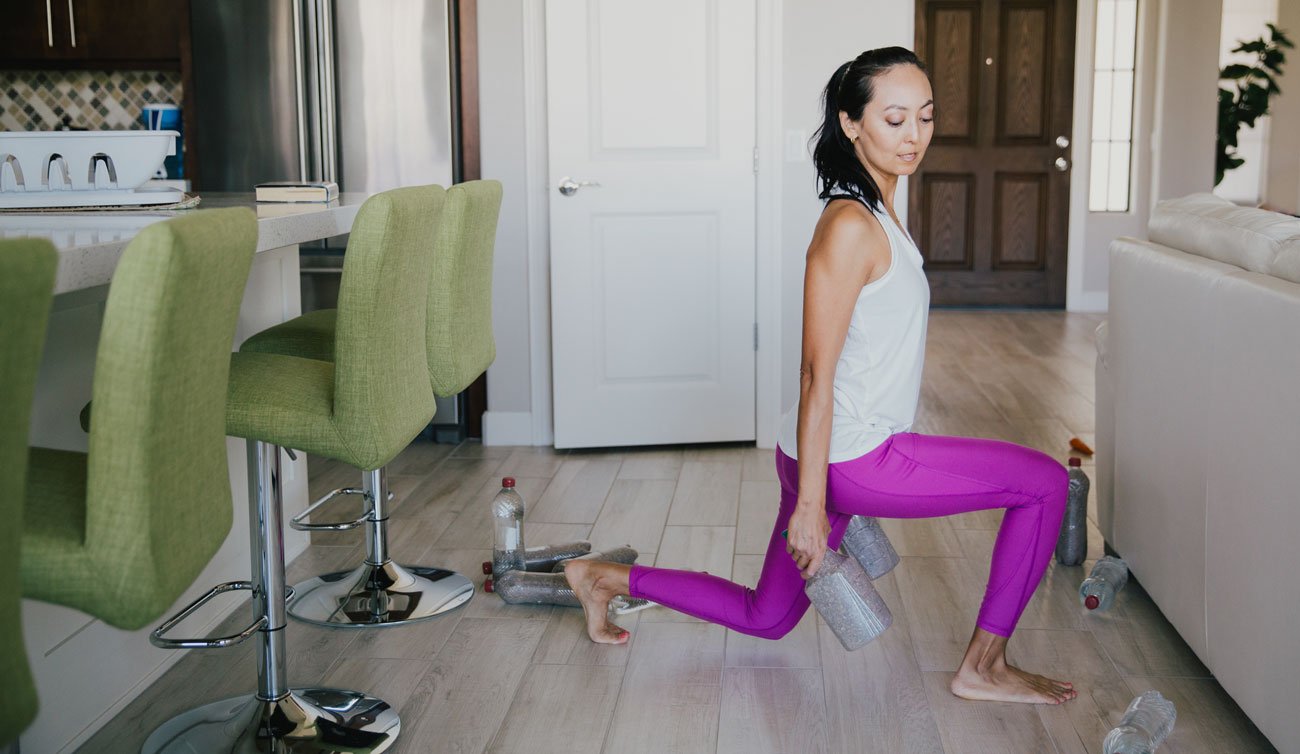Written by Patricia Sheahan
Did you know that muscle strength is an indicator for a long and healthier life? Research shows that people with greater muscle strength have a 54% lower mortality strength than those with less muscle strength—and that muscle strength, not muscle mass, is the key indicator.
What’s more, the link between low strength and increased mortality risk is higher in women—up to 84%—than among men (up to 51%). Both muscle strength and mass decline significantly during perimenopause and menopause, and that process continues as women age, according to Jackson Fyfe, postdoctoral research fellow within the Institute for Physical Activity and Nutrition at Deakin University in Australia.
“The loss of muscle mass, from peak levels at about the age of 30, is about 4% a decade for women and 5% a decade for men,” says Dr Fyfe. The upside is that you can fight the process. “Bones and muscles begin to decline at 30, but we can slow that down,” he says. “Studies show even people in their 90s can respond positively to exercise in terms of improving muscle strength and bone density. It’s never too late to start.”
Best of all, you don’t have to spend hours a day lifting weights. Dr Fyfe’s research has identified that small grabs of activity, known as strength snacks or exercise snacks, can improve muscle strength. These are simple, time-efficient bodyweight exercises that require no equipment.
Bones and muscles begin to decline at 30, but we can slow that down. Studies show even people in their 90s can respond positively to exercise in terms of improving muscle strength and bone density.
Jackson Fyfe, Deakin University
“Our study was with 40 people aged 65-plus who completed home-based daily strength snacks such as sit-to-stands. They performed five exercises, each one for one minute continuously, with one minute of rest in between,” Dr Fyfe says.
“Each session had a total time commitment of 10 minutes. Participants performed the strength snacks once, twice, or three times a day for four weeks.”
The study found significant changes in physical performance, balance, mental health as well as general wellbeing. “Even performing strength snacks once a day is effective for improving your strength, muscle mass and physical ability,” Dr Fyfe says.
Importantly, the program was shown to be both effective and sustainable, with 87 per cent of participants sticking with it. “The participants said the strength snacking was easy, practical and time efficient.”
Six Easy Strength Snacks to Increase Longevity
Hands-Free Sit to Stand
Sit in a chair with your feet flat on the floor. Cross your arms in front of your chest so you are not tempted to use them to push off. Stand up, then slowly sit back down and repeat a number of times. Perform as many repetitions as you can in 1 minute. Rest for 1 minute before the next exercise.
Single-Leg Squat
Stand behind a chair and place both hands on the back rest. Move one foot backwards slightly with your toe just above the floor—your rear leg is there to stabilize you. Keep your gaze straight ahead, your back straight, and carefully lower yourself on the front leg, as far as you can comfortably bend the knee, and then rise back up. Keep repeating this movement for 30 seconds, then switch legs and do another 30 seconds. Rest for 1 minute before the next exercise.
Side Lunges
Start in a standing position, perhaps with a wall (or another type of support) to one side. Take a comfortable step out to one side with one leg, bend the other knee over your ankle. Hold this position briefly and then return to a standing position. Repeat as often and you can in 30 seconds, then repeat on the other leg for 30 seconds. Rest for 1 minute before the next exercise.
Calf-Raise
Stand with both legs straight and hip-width apart. Hold onto a support for balance if necessary. Rise up onto your toes, keeping your legs straight, and slowly lower yourself back down to the start position. Repeat for 1 minute, then rest for 1 minute before the next exercise.
Marching Squat
Stand up straight with your arms raised in front of you. Bend elbows to 90 degrees, palms facing each other, and lower yourself into a squat position. Push upward from your heels, and as you reach the top of the squat, simultaneously lift one knee and lower your opposite elbow until they meet. Return to the squat position and repeat, leading with your other leg and elbow. Repeat as often as you can in 1 minute, alternating the knee that you raise each time. Rest for 1 minute before the next exercise.
Rapid Stepper
Stand up straight facing a step. Step up onto it, leading with your left leg, then back down. Keep repeating this, leading with the same leg, for 30 seconds. Switch to your right leg and continue stepping up and back down for another 30 second. Now rest.
Before You Start
If you are new to muscle strengthening activity, Dr. Fyfe suggests the following.
- Start with one or two exercises and build to four to six exercises a session.
- Focus first on good technique more than speed or number of repetitions. For example, keep your back straight during squats, keep your knees in line with your toes during squats or lunges, and always engage your core to support your lower back.
- Once you have the technique down, increase the intensity by performing more repetitions or by adding some weight during squats or lunges.
- Increase the difficulty over time. For example, focus on your balance by adding a knee-to-elbow movement at the top of your squats, or doing some single-leg squats without support.
This article was originally published in Tonic Magazine.







